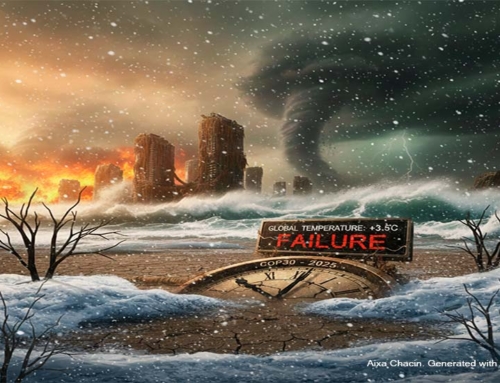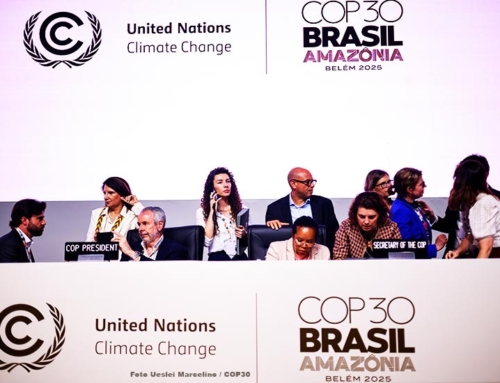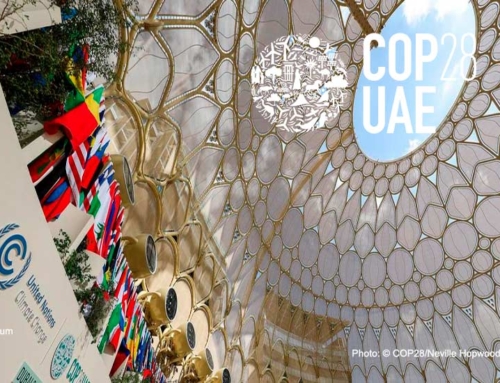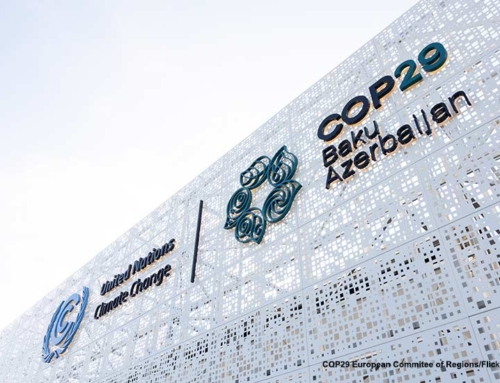The conference of the parts on climate change has not matched the expectation it caused
There is an old joke in which a guy who lives in Europe, e-mails his brother that has been living in New York for the last few months: “Your cat fell off the roof and died” said the e-mail. After having cried for 3 days over his beloved cat’s death, the guy living in New York replies to his brother in Europe saying: “ look, you cannot imagine how hard this has been for me, you can’t just give bad news like that. You should try softening bad news by preparing those who will be affected by them. For example, you should have sent a first e-mail saying: “Your cat went up to the roof”. The next day you can write a second e-mail saying: “Your cat is walking near the edge of the roof”. The day after that one you e-mail me saying: “Your cat fell of the roof and into the swimming-pool”. The next day you send an e-mail that says: “Your cat is in a very bad condition, is very unlikely for him to make it through this one”. At the end you send a final e-mail saying: “I’m very sorry brother, but your cat passed away”. The brother in Europe replies to this e-mail admitting that he made a mistake and says that he will take his advice into account should he ever give a piece of bad news again. After a couple of months the guy living in Europe receives an e-mail, it’s from his brother, it says: “Brother, mother has gone up to the roof”.
If you reading this, no matter where you are in the world, walked up to an averagely crowded spot and asked certain questions, you would realize that almost all of the respondents wouldn’t respond correctly to a quarter of the questions asked. One of the bigger problems there are regarding the Protocol of Kyoto and many other topics focused on our deteriorated rotatory habitat is the generalized ignorance of many of the neighbors living in this damaged blue planet as well as the indifference shown by those neighbors and most of the media towards this subjects. If a more generalized awareness about this matter existed among the people living in this planet, it would be a lot harder for governments to make the decisions they are making, antagonistic to the most basic survival instincts.
After finishing the survey you would then be able to notice by the answer of the respondents that pretty much no one knows that the Protocol of Kyoto is a document that was born in the Earth’s Summit held in Rio De Janeiro in 1992, product of the results of a series of research made at the time that reflected an augmentation of the planet’s temperature of 0.3 °C by decade. You would also realize that most people are ignorant of the objectives of Protocol of Kyoto, being these to alleviate the effects of the climate change produced by the increase of the emissions of greenhouse effects gases. That is widely unknown that 180 countries made a commitment in Rio to adopt different measures to soothe the effects of climate change, commitments that later derived in the Protocol of Kyoto. At this point you would know that only a handful knows that the Conference of Parts (COP) was established as the supreme authority of the UN’s framework on climate change, with the association of the countries that are a part of it, and that this Conference is annually celebrated in summits with the goal of battling the climate change. In the same way you would find out that is not of general knowledge that the agreement came into force on march 21st 1994, that the first conference, COP1, was held in Germany in 1995, that the Protocol of Kyoto was initially singed by 160 countries on December 11th 1997 in the Japanese city of Kyoto, and that from then on it acquired it’s baptism certificate that gives it its name as well as it fame, worldwide known as the one great hope the world has against climate and environmental adversities.
A significant percentage of the respondents to your survey surely ignores that it was agreed, through the Protocol of Kyoto, that in the 2008-2012, approximately 10 years after the protocol’s signing, for the emissions of greenhouse effect gases to be reduced to a 5% of the levels those emissions presented in 1990, meaning by this that each country was responsible of reducing its emission in a percentage relative to its pollutant activities. According to this, the EU should have reduced its emissions in an 8%, while Japan and the US in a 7 and 6% respectively. For countries with little industrial activity it was allowed to even increase their emissions, such as Spain, country that was allowed to increase its emissions in a 15%. Two groups of countries were formed, “Appendage 1” and “Appendage 2”. Countries belonging to Appendage 1 were the 37 most industrialized countries in the world. These were obliged to honor their commitments through any mean possible, even by “Carbon Exchange”. Appendage 2 was formed by developing countries, which were exonerated of fulfilling their obligations and commitments but had to stick to what was established in the Protocol of Kyoto. In 1998, the countries of the EU ratified the Protocol of Kyoto while the US didn’t, complaining about “Unfair Competition”, given that China, India and Brazil, found in appendage 2 did not have any obligation to the Protocol of Kyoto. Up to 2003, 120 countries, responsible of 44% of the greenhouse effect gases had ratified the Protocol of Kyoto. Russia ratified the Protocol of Kyoto in 2004, being this addition a fundamental one for the agreement to have legal validity. In 2007, during COP13 in Bali, a very important step towards the creation of a new document fit to substitute the Protocol of Kyoto was taken and a plan for the negotiations set for COP15 in Copenhagen was made. All of these efforts became useless after the resounded failure of COP15 to create a new binding agreement to substitute the document born in Japan. This was differed for the next year’s conference, COP16, Cancun, Mexico, where no progress was made in this subject, showing once again the world’s incapability of reaching an agreement. Today, 12/09/2012; when this post is being written, the last day of COP17, Durban, South Africa is currently taking place, offering the world news that cannot be considered as encouraging or hopeful. On top of this, COP17 has adopted a secondary role as the summit related to the European crisis being held in Brussels and having the goal of saving the Euro concentrates all of the world’s attention.
Leaders worldwide have always managed a way not to send the world negative or rough news. In recent past years they have by all means avoided saying that the Protocol of Kyoto has died, is close to its death, in some danger of disappearing or anything like this. They have, just as in the joke at beginning of this article, softened the impact of bad news, but continuously sent pretty clear signs for the people who pay some sort of mind to these subjects. Signs that have been dosed slowly but systematically and that could be translated as: the protocol has gone up to the roof, the protocol is walking near the edge of the roof, the protocol has fell in the swimming pool, the protocol is in very bad shape and its survival is unlikely: just so they can finally deliver the lapidary: I’m sorry brother, the protocol is dead.
This, even when based on a joke, is very far from being one and should be said as raw as it is: to postpone the urgent measures against climate change is equivalent to postponing the beginning of chemotherapy of a family member suffering from cancer. In both cases, consequences will be fatal and irreversible, but in the first case, billions of people, as well as hundreds of thousands species will be affected.
Sandor Alejandro Gerendas Kiss







Leave A Comment